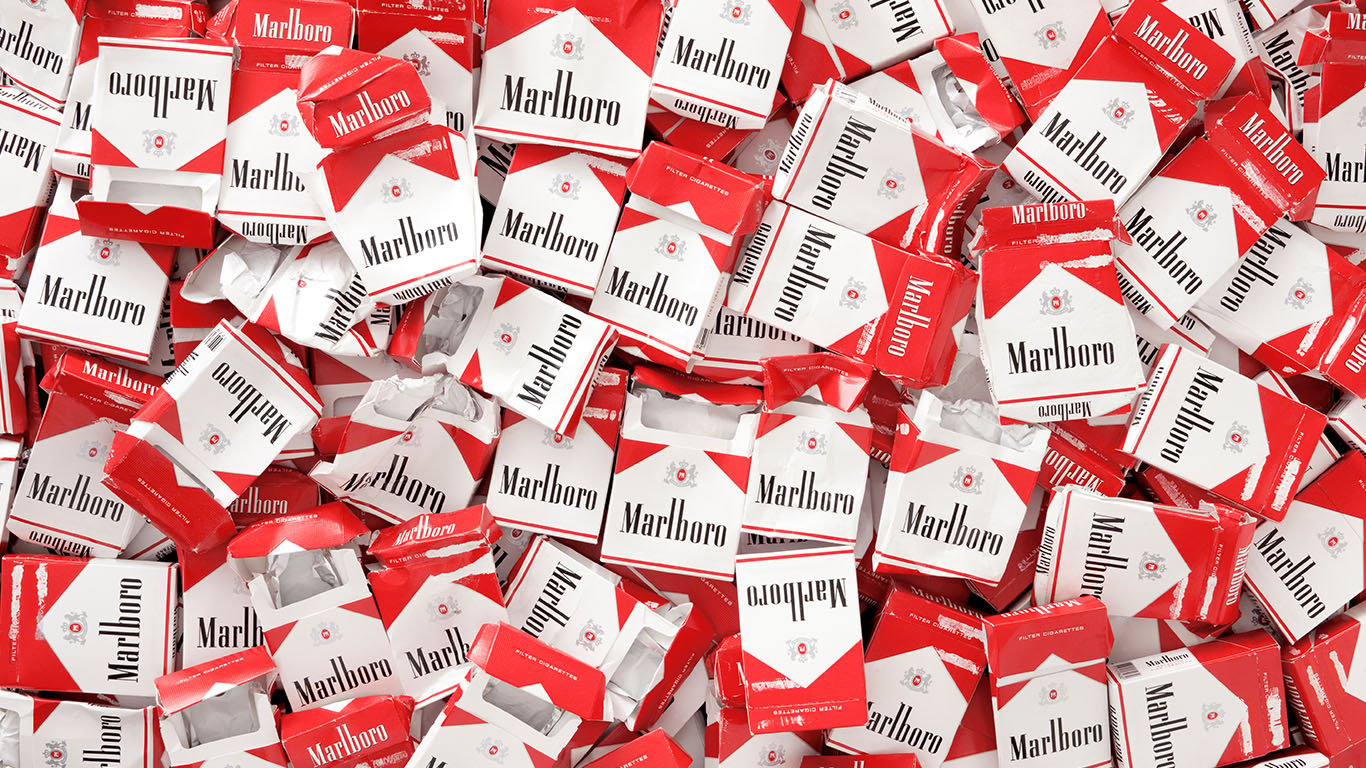

U.S. markets suffered a bloodbath on Monday. The S&P 500 index fell below 4,000 to finish at its lowest point in a year, the Nasdaq Composite plunged by 4.3% and the Dow Jones industrials lost 2.0%.
Looking at the overall market since the beginning of the year, only one sector (energy) has posted positive performance. Energy stocks as a group have added nearly 37% to their share price so far this year. Only two other sectors are even close to breaking even for the year to date: consumer staples and utilities.
[in-text-ad]
It is probably no surprise that the tobacco giants are the defensive stocks offering the largest dividend payments while also being highly liquid. There are a few stocks that offer double-digit dividends but trade relatively few shares a day. The heavily traded tobacco stocks will always be in demand for their solid payout ratios and their liquidity.
The tobacco stock with the combined features of a high daily trading volume and a high dividend is Altria Group Inc. (NYSE: MO). The stock trades an average of 9.4 million shares a day, and its annual dividend of $3.60 yields 6.51%. For the first quarter of the year, Altria beat the consensus earnings estimate while missing on revenue. Revenue was down 1.2% year over year, but tobacco companies have tremendous pricing power because consumers are almost fiercely loyal and generally willing to pay up. Altria’s free cash flow per share is $4.55 for the past 12 months and its payout ratio is 215.6%.
Continuing with the so-called sin stocks, beer brewing giant Ambev S.A. (NYSE: ABEV), with brands including Budweiser, Modelo and Corona, pays a dividend yield of 4.11% ($0.11 annually) and trades an average of more than 25 million shares daily. The company operates in four divisions: Brazil, Central America and the Caribbean, Latin America South, and Canada. Free cash flow per share for the past 12 months is $0.18 and Ambev’s payout ratio is 73.5%.
Discount stores typically do well during hard economic times, and this time is unlikely to be different. Big Lots Inc. (NYSE: BIG) pays the best dividend in this industry, $1.20 annually, yielding 3.5%. While not as liquid as Walmart or Target, its daily trading volume of around 1.3 million shares offers some cover when the markets turn around again. Free cash flow per share is $1.16, and the company’s payout ratio is 23.4%. Shares traded up 10.5% on Monday.
Because people always have to eat, the packaged food industry may be a good bet for a solid defensive play. B&G Foods Inc. (NYSE: BGS) pays a dividend yield of 7.55% ($1.90 annually) and trades about 1.2 million shares a day. The company’s payout ratio is 194.8%, but free cash flow per share is only $0.79. Kraft Heinz Co. (NYSE: KHC) pays an annual dividend of $1.60 (yield of 3.62%) while trading more than 7.5 million shares a day. Free cash flow per share is $3.39, and the company’s payout ratio is 160%.
Both of these are likely defensive plays, but B&G reported first-quarter results last week in which earnings per share that were more than 28% lower sequentially and revenue that was more than 9% lower than in the prior quarter. Kraft Heinz reported earnings up nearly 14% sequentially and a sequential revenue increase of more than 5% in its most recent quarter.
Sponsored: Want to Retire Early? Start Here
Want retirement to come a few years earlier than you’d planned? Orare you ready to retire now, but want an extra set of eyes on your finances?
Now you can speak with up to 3 financial experts in your area for FREE. By simply clicking here you can begin to match with financial professionals who can help you build your plan to retire early. And the best part? The first conversation with them is free.
Click here to match with up to 3 financial pros who would be excited to help you make financial decisions.
Thank you for reading! Have some feedback for us?
Contact the 24/7 Wall St. editorial team.



